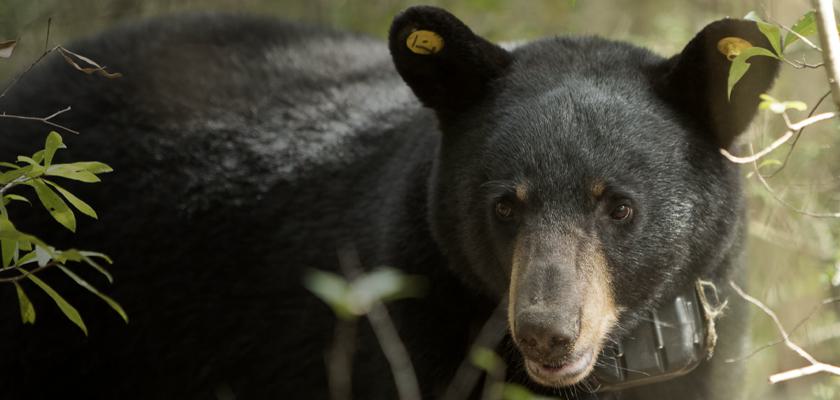Biologists and researchers are tracking a trio of black bear cubs in northeast Alabama to learn more about how the animals live in the wild.
A team located the young bears in DeKalb County near Mentone and placed collars on them that contain passive integrated transponders, which can be tracked electronically, according to a news release from the Alabama Department of Conservation and Natural Resources.
“That collar expands as they grow," said Traci Wood, who works for the wildlife agency. "After six to nine months, that collar will fall off. So, if we trap that animal later, the PIT tag will identify as a cub we had previously collared."
Researchers were able to find the baby bears by tracking adult female bears that were trapped and fitted with GPS collars last summer. That work revealed the location of bear dens.
The project, which will expand into southwest Alabama this weekend and teams head to the Mobile area to look for more bears to collar, is intended to help researchers learn more about the types of dens used by female bears.
“What that collar also tells us is if that cub has died," said Wood. "If they die, we receive a transmitter signal, and we can find the location of the den and try to determine the cause of death. This will give an indication of how cubs are recruiting into the population.”
The state, which works with a research team from Auburn University, estimates that from 30 to 35 bears live in northeast Alabama and around 125 live in southwest Alabama. Some of the northern bears move southward and turn up occasionally around Birmingham or Alexander City, the statement read.
Once the cubs that are tracked become adults and are collared again, researchers can learn a lot about bears' habits and habitat.
“It tells us where they are going, if they’re having cubs in the future,” Wood said. “Hopefully, it’s a long-term look at the life ecology of a bear from when it’s born to its reproductive age.”










